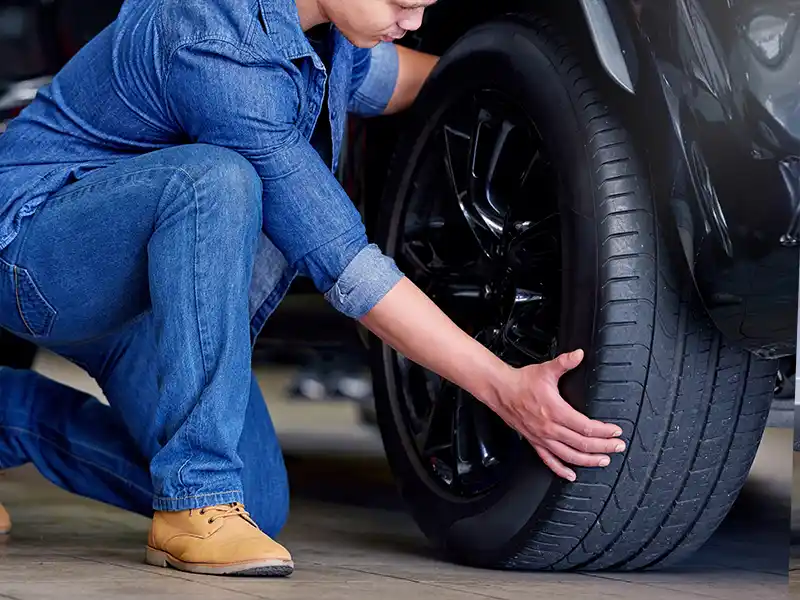Picture this: You’re cruising down the highway, the wind whipping through your hair, your favorite tunes blasting through the speakers. Then, as you reach 60 your car starts shaking like it’s part of a dance party you didn’t sign up for. Suddenly, your enjoyable drive feels like a wild roller coaster ride. What gives?
My Car Shakes When I Hit 60 MPH
Car shaking when hitting 60 mph is often due to tire-related issues such as unbalanced tires, uneven tire wear, wheel damage, or loose lug nuts. However, the problem could also lie in other components like the brake system, the engine, or even the car’s fuel system.
In this article, we’ll explore the common culprits behind this unnerving phenomenon, from tire issues to steering wheel concerns, and brake system quirks to other potential problems. We’ll also offer you a guide to diagnose the issue and provide practical tips on how to prevent your car from shaking in the future.
Let’s take a closer look.

What Does It Mean When Your Car Shakes?
Car shaking, or car vibration, is exactly what it sounds like: your vehicle starts to quiver and tremble while you’re driving. Sometimes it’s subtle, like your steering wheel is humming a little tune. Other times, it can be more noticeable, like your entire car is doing a jitterbug. A few things that might happen include:
- Your steering wheel starts to shake
- The seats or floor of the car seem to vibrate
- You can feel the car shaking through the brake pedal
Car shaking can be disconcerting, and it’s definitely something you want to get checked out. Remember, your car is made up of many parts all working together – if one thing’s out of sync, it can throw the whole performance off.
The Mystery Of The 60 MPH Mark
60 mph seems to be the magic number where car shaking often gets noticeable. But why? This comes down to physics. As your car picks up speed, small imbalances or problems can get magnified. Think about when you’re on a bicycle – a little wobble at a slow speed is manageable, but at high speeds, it can become pretty unstable. The same idea applies to your car, especially if there’s an issue with your tires.
Intermittent High-Speed Shaking
Now you might be wondering, why does my car shake at certain high speeds, but then smooth out again at others? It’s all about resonance. When your car hits a speed where the vibration frequency from a problem part matches the car’s natural frequency, you’ll feel shaking. But if you speed up or slow down, those frequencies don’t match anymore, and the shaking can stop. Kinda cool, right? But still something we want to fix!
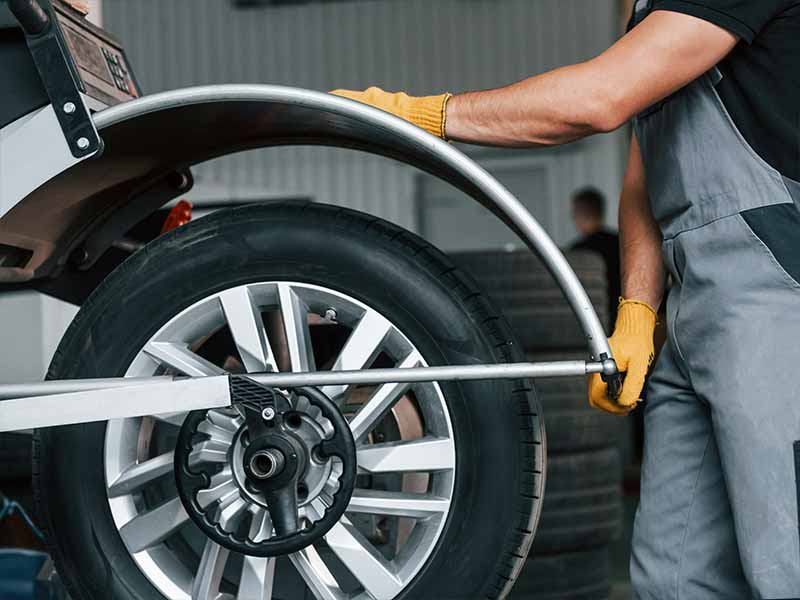
The Importance Of Tires
Let’s switch gears (pun intended) and chat about the most common cause of our car shake mystery – the tires. These four round wonders take us places, but when they’re off balance, worn out, or under-inflated, they can also take us for a shaky ride.
Tires And Vehicle Stability
When your car is zooming down the highway, it relies heavily on tires for stability. A tire in perfect condition distributes weight evenly, providing a smooth and balanced ride. Think of it like a well-trained gymnast balancing on a beam – everything is in harmony. But if that gymnast wobbles (or in our case, if the tire is unbalanced or worn out), things get shaky.
Unbalanced Tires And Car Vibrations
Sometimes, your tires might not wear evenly or might end up carrying more weight in one part than another. When that happens, we say the tire is ‘unbalanced’. This can lead to:
- The car shaking, especially at high speeds
- Uneven and faster tire wear
- Strain on the car’s suspension
A wheel balancer or tire balancer can measure and correct these imbalances, making your ride smoother.
The Connection Between Tire Wear And Car Shakes
Tire wear is a normal part of driving. But if a tire wears unevenly (maybe it’s been carrying too much weight on one side), it can become unbalanced, leading to those pesky car shakes. If you’re noticing your car shake around 60 mph, check your tires for signs of uneven wear.
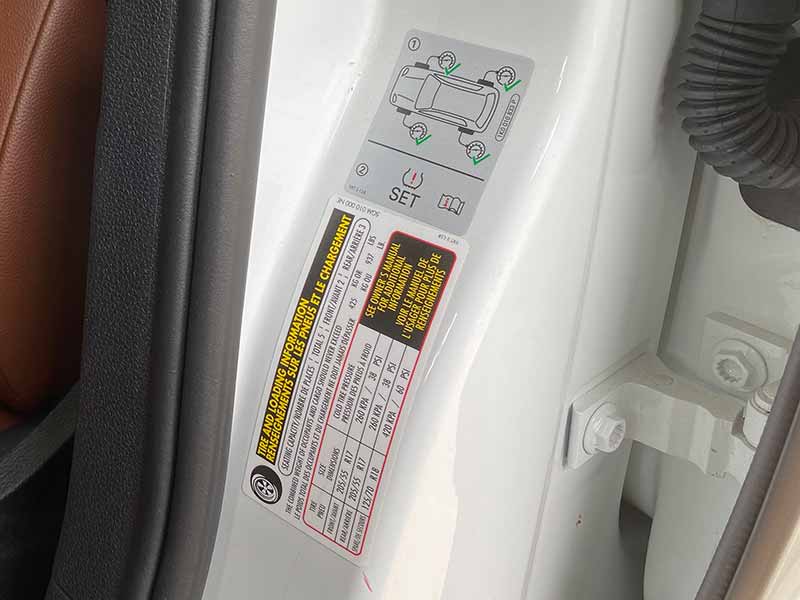
The Role Of Tire Pressure
Picture this: you’re at a pool party, and you’re floating on an inflatable pool toy. If the toy is perfectly inflated, you’re happily floating without a care in the world. But if it’s under-inflated, things can get wobbly and you might end up taking an unexpected swim. It’s similar with your car. Low tire pressure can cause your car to behave differently, and one of those behaviors can be shaking at high speeds.
How Wheel And Tire Balancers Save The Day
You’ve heard the terms ‘wheel balancer’ and ‘tire balancer’ being tossed around. But what do they do? These nifty devices help even out weight distribution around your tires, making sure every part is carrying its fair share. This keeps your tires rolling smoothly and reduces the risk of your car shaking.
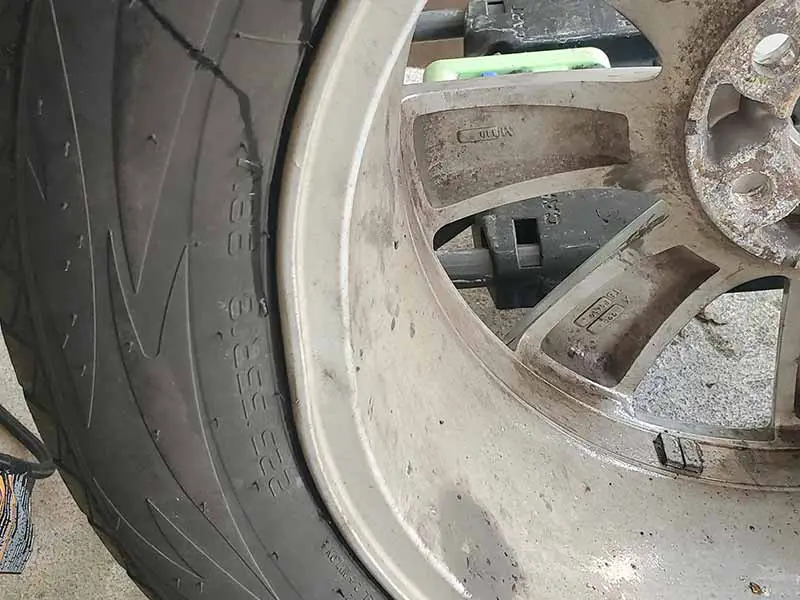
The Impact of a Bent Rim on Car Shaking
A rim is an integral part of your car’s wheel that holds the tire in place, and a bent rim can indeed be a source of your vehicle shaking, particularly at high speeds. This typically happens if you’ve accidentally hit a deep pothole, curb, or had some other form of a hard impact. When a rim gets bent or warped, it can throw off the balance of the wheel and tire assembly, leading to an uneven distribution of weight.
This imbalance can cause your vehicle to shake or vibrate when you hit certain speeds. You might notice this shaking in the steering wheel, the seat, or even the entire car, depending on the severity of the rim damage and where the bent rim is located. The shaking often gets worse the faster you go, so you may not feel much vibration at low speeds, but once you hit 60 mph or higher, the shaking could become quite noticeable.
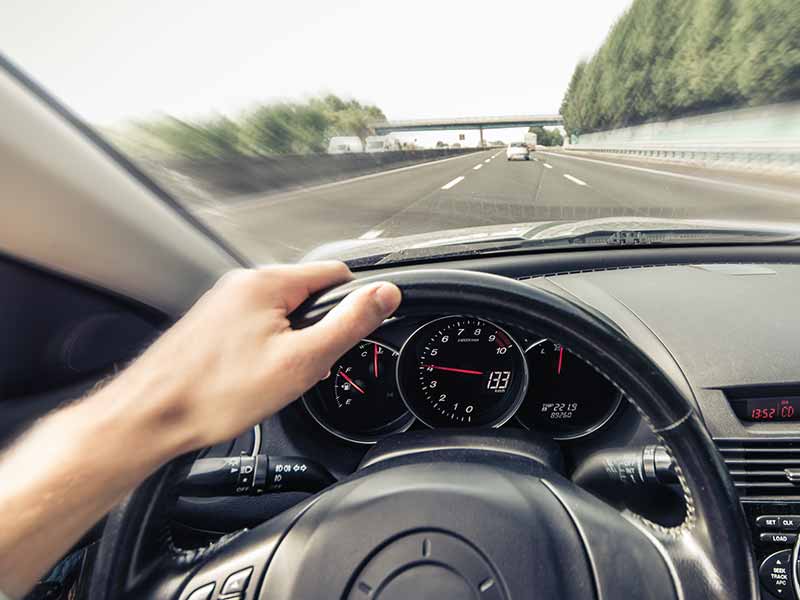
The Role Of The Steering Wheel And Its Connection To Car Shaking
Alright, let’s take a detour from the world of tires for a moment and steer our way (get it?) into understanding the role of the steering wheel in this car shaking saga.
What A Shaking Steering Wheel Tells You
First things first, a shaking steering wheel is trying to tell you something, and it’s not “let’s do the twist”. If you notice the steering wheel shake when you hit a certain speed, it’s time to pay attention.
A shaking steering wheel could point towards a couple of issues:
- Problems with your tires (see, we can’t stay away from them for long!)
- Problems with your vehicle’s suspension
- Problems with the front end of your car
So what’s going on? Let’s break it down.

Front End Vibrations At High Speeds
The front end of your car houses many key components – the engine, the tires, the brakes, and of course, the steering wheel. If something is off with any of these, you might feel the steering wheel shaking, especially at high speeds.
Possible culprits can be:
- Misaligned wheels
- Worn-out front end parts
- Brake problems
But remember, our main focus here is tires, and front end problems often come back to them.
Steering Wheel Shake In Rear-Wheel Drive Cars
What if you’re driving a rear-wheel-drive car? The story doesn’t change too much. In fact, you might feel the shaking more intensely in the steering wheel because these cars rely heavily on the front wheels for steering, while the rear wheels do the pushing.
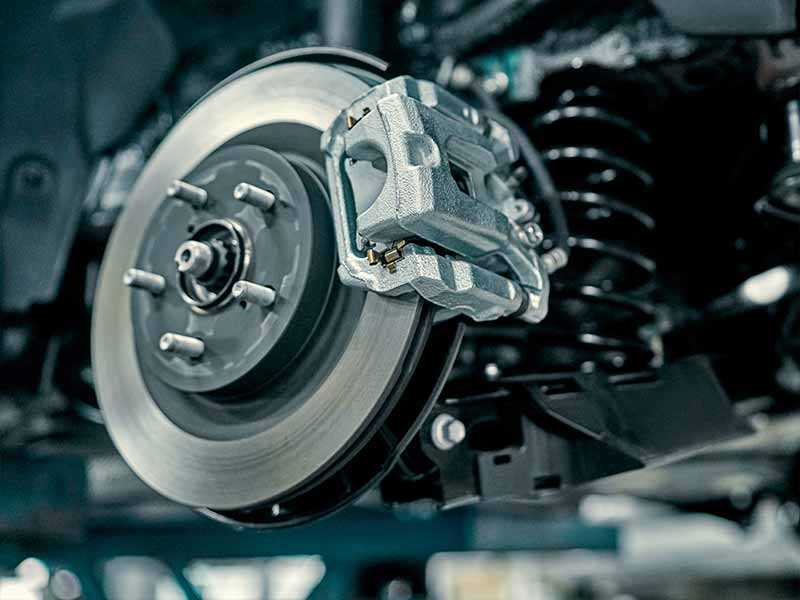
Brake Systems And Car Shaking
Whoa there, partner! Time to pump the brakes and slow down for a bit to talk about, well, brakes. From rotors to calipers to pads, the brake system is a vital part of your car. And guess what? Problems here can also contribute to car shaking. Let’s dive in.
A Quick Brake Breakdown
Think of your brakes as your car’s superhero team – each part has a crucial role to play in saving the day (and preventing accidents). Here’s the lineup:
- Brake Rotors: These are the big discs that you might’ve seen when changing a tire. When you hit the brake pedal, these guys are squeezed by the brake pads to slow down your car.
- Brake Pads: These are the unsung heroes that create the friction to slow your rotors (and your car) down.
- Brake Calipers: These are like the strong arms that push the brake pads onto the rotors when you hit the brakes.
Okay, so how can issues with these heroes lead to car shaking?
The Connection Between The Brake Pedal And Car Vibrations
When everything in your brake system is working correctly, you should feel a smooth response when you hit the brake pedal. But if something’s off, you might feel vibrations through the pedal. This could be due to:
- Warped brake rotors
- Worn out brake pads
- Sticky brake calipers
Understanding Sticky Brake Calipers And Their Impact On Car Shaking
Under normal circumstances, brake calipers release the brake pads after you let off the brake pedal. But sometimes, calipers can get ‘sticky’, causing the pads to continually rub against the rotors. This not only causes rapid wear on your brake pads and rotors but also leads to – you guessed it – car shaking.
And Back To Tires Again!
Surprise, surprise. Your tires can also affect how smoothly your brakes operate. If your tires are unbalanced or worn out unevenly, this can put extra stress on your brake system and lead to shaking.
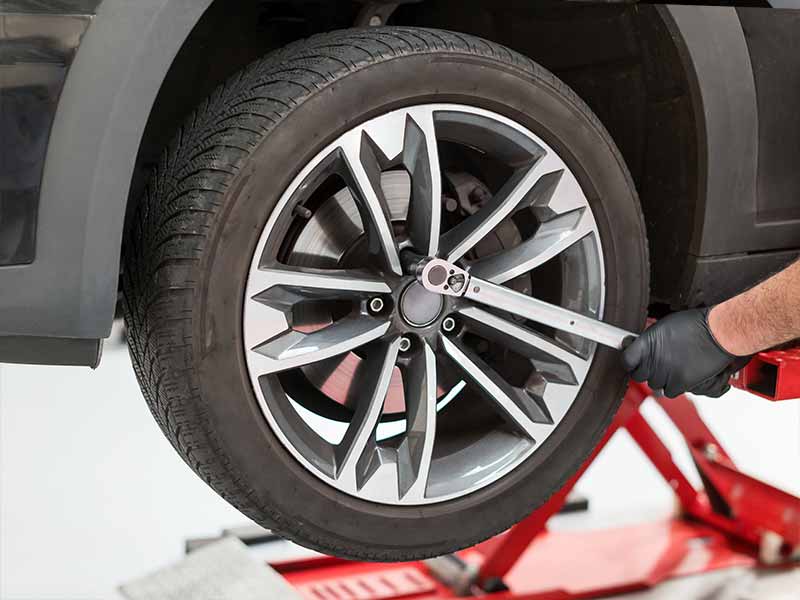
Other Potential Causes of Car Shaking
Alright, we’ve tackled tires, taken a turn with the steering wheel, and braked for a deep dive into brake systems. But our car shaking mystery isn’t solved just yet. There are other parts of your car that could be causing those unwanted shakes and shimmies. Let’s explore!
Loose Lug Nuts And Car Vibrations
Picture this: you’re trying to move a table, but one of the table legs is loose. You’d notice that the table would be unstable and shaky, right? Similarly, loose lug nuts can make your car shake. Lug nuts hold your wheels to your car, and if they’re not tight enough, it can lead to wheel wobble and vibration.
The Link Between Broken Motor Mounts And Car Shaking
Motor mounts act like cushions for your car’s engine, keeping it secure and reducing vibrations. But if these mounts break or wear out, they can’t do their job properly. The result? You might start feeling those vibrations in the form of car shaking.
Spark Plugs And Car Shaking
Spark plugs are like the little cheerleaders for your car’s engine. They ignite the air-fuel mixture in your engine, which in turn powers your car. But if your spark plugs are worn out or dirty, they can’t create that spark efficiently. This can lead to engine misfires, which you might feel as your car shaking or vibrating.
Understanding The Role Of Your Car’s Fuel System
The fuel system feeds your car’s engine with the gas it needs to run. But if there’s a problem with this system – say, a blocked fuel line or a dirty fuel injector – your engine might not get the right amount of gas. This can also lead to engine misfires, causing your car to shake.
Could Low Transmission Fluid Be The Culprit?
Transmission fluid keeps your car’s gears running smoothly. But if this fluid is low, it can cause your transmission to perform poorly, and you might start noticing car shakes, especially when shifting gears.
Resources
Below are some links you may find helpful when learning about tires
- Q: Car shakes at 60 mph and higher stops when I let off gas – Your Mechanic
- Balancing tires – Continental Tire
Final Thoughts
The usual suspects often point towards your car’s tires, whether it’s unbalanced tires, uneven tire wear, or even loose lug nuts. But remember, the steering wheel, brake system, and other parts of your vehicle like the engine and fuel system could also be party to this shaky situation.
The key takeaway? Regular maintenance is your best friend. Keep a close eye on your tires, get your brakes checked regularly, and ensure your car’s engine and other components are in top-notch condition. With these proactive measures and the knowledge you’ve gained, you’re well-equipped to navigate the road to a smooth, shake-free ride.
Good luck and happy motoring.
